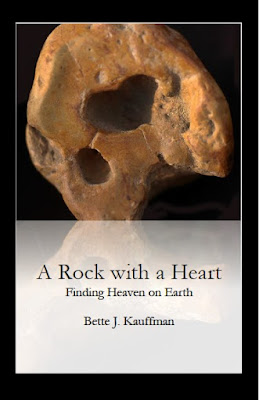-->
Luke chapter 4 tells the story of
Jesus going to his hometown of Nazareth, where he goes to the synagogue as was
his custom. He is given a scroll, and he chooses to read the following:
The Spirit of the Lord is upon me, because he has anointed
me to bring good news to the poor. He has sent me to proclaim release to the
captives and recovery of sight to the blind, to let the oppressed go free, to
proclaim the year of the Lord’s favour.
After reading these words, Jesus hands back the scroll and
says to the people, Today this scripture
has been fulfilled in your hearing.
Those of you familiar with the Hebrew scripture know that
Jesus is quoting Isaiah, one of the great prophets of Israel, who is preaching
the Word of God to God’s people.
Those of you familiar with the Christian scripture know
that this event, recorded in Luke chapter 4, signals the beginning of Jesus’
public ministry on earth.
As this story illustrates, the call to stand with those who
are poor and oppressed links Jewish and Christian traditions.
Today, in this year of election politics, I propose that in
this passage, Jesus is laying out God’s platform and claiming it for himself.
He is saying, this is God’s
mission, and I am here to fulfill that mission. It is a political mission
in any age.
Today our economic system is creating inequality at the
fastest rate in recent history. The gap between the wealthiest in our society
and those huddled at the bottom… has nearly tripled in the last 30 years. (Wealth Inequality in America by politizane; on
YouTube; based on research at Harvard)
Millions of Americans work, and work hard, often at 2 or
more jobs, and still barely make ends meet. They are one major car repair, or
one major medical bill, away from homelessness or the clutches of the
predatory lenders. (ALICE, a study by
United Way)
And the income gap is worse in Louisiana than in most of
the country. Many are forced into an alternative economy.
Alton Sterling was trying to feed his family selling CDs in
a parking lot.
To stand in solidarity with those who are poor and
oppressed, to seek to open the eyes of those who are blind to inequality and
injustice is unavoidably political. It requires us to leave the comfort and
familiarity of home and neighborhood, and join hands across lines of race,
religion, and socio-economic status that traditionally divide.
In the words of a praise song we sing in my religious
tradition, it requires us to get out of our stained glass boat and walk on the
water... without worrying about getting our feet wet or how, exactly,
we’re going to get to the other side.
We, the people of God, are called to do just that. And we
are called to do it as peacemakers, without falling captive to the fear and
violence that plagues our society. We must not be divided by the polarizing
forces in our politics and in our media.
And we must bring forth real solutions. One of those is to
move people out of unemployment and under-employment, out of minimum wage jobs,
into jobs that will support their families.
Northern & Central Louisiana Interfaith was one of the
founding forces of a workforce intermediary called NOVA – New Opportunities
Vision Achievement. NOVA helps people get the training they need, then matches
them with employers who offer living wage jobs with a career path and benefits.
More than 80% of those who enter NOVA’s program, finish it
and are placed in such jobs. NOVA graduates contribute approximately $8 million
annually to the Ouachita Parish economy.
NOVA has already expanded from Ouachita parish into the
Delta. We need comparable programs here in Shreveport, in Baton Rouge and
throughout Louisiana. We need to use dollars recovered from Industrial Tax
Exemptions by Gov. Edwards’ recent order to expand workforce development.
Today Interfaith, Together Baton Rouge and our sister organization in Dallas stand in solidarity and invite people of good will to work with us to
free our State from the oppression of poverty, to free us all from the prison
of racial distrust and fear, and to bring about the year of the Lord’s favor.
We refuse to be divided.


